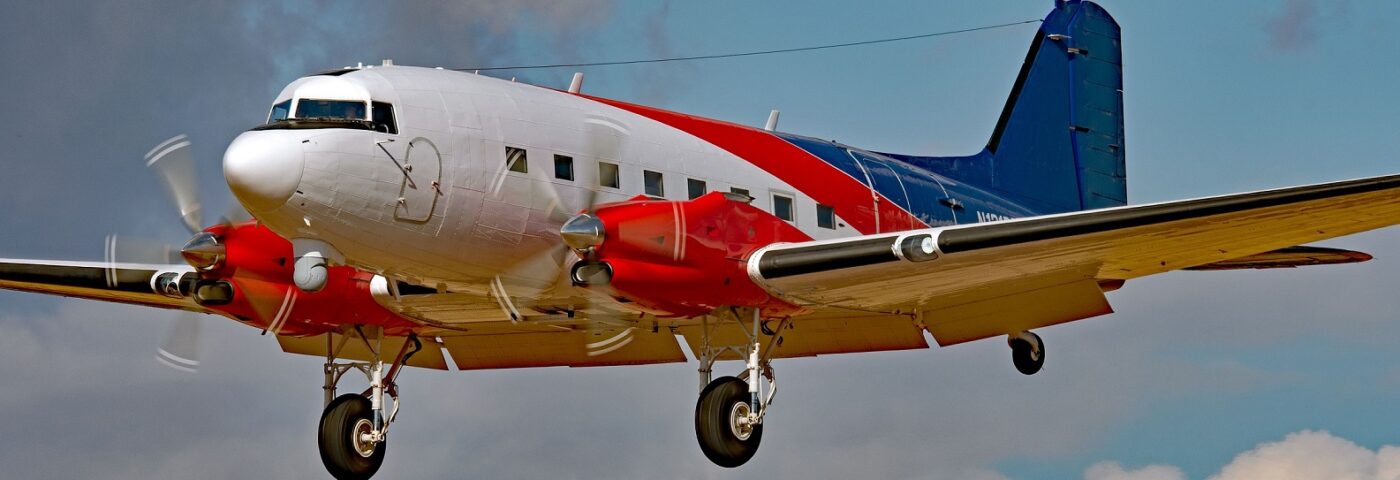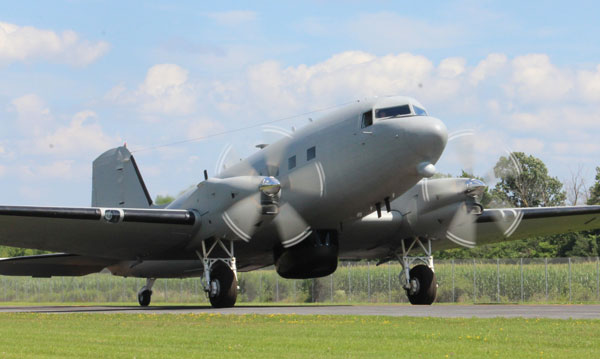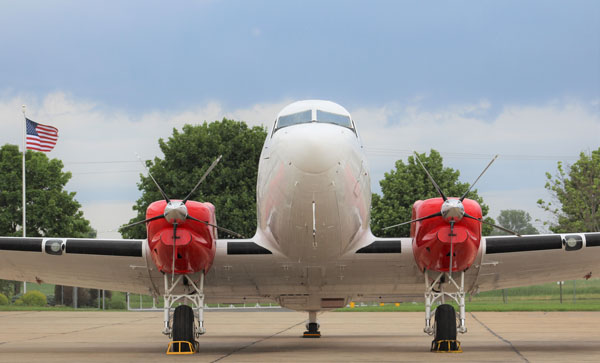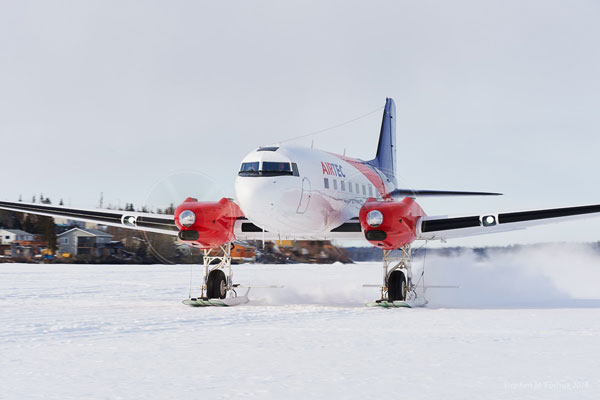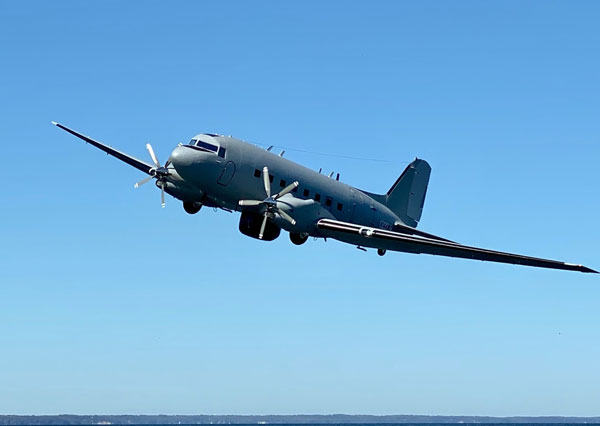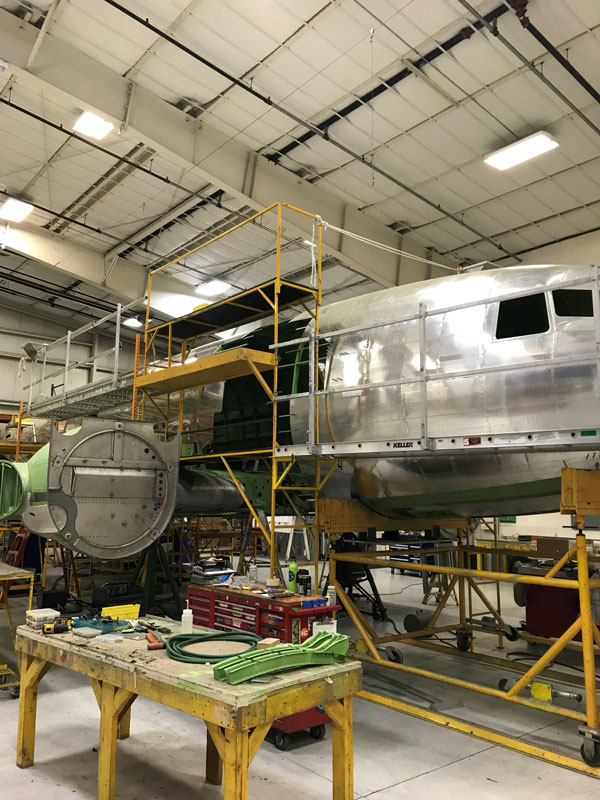Joe Varkoly, Basler Turbo Conversions president, will speak about the process of converting World War II-era DC-3s and C-47s into modern, turbine-powered BT-67s on Thursday, February 16, at 7 p.m. as part of the EAA Aviation Museum Aviation Adventure Speaker Series.
Joe has been with Basler for about five years. With a background in sales and finance at non-aviation companies, Joe was semi-retired when he received a call from a recruiter to work at Basler. Thinking it sounded like a unique opportunity, Joe jumped at the chance and is still there half a decade later.
“I’m not the 40-year aviation guy like some people,” Joe said. “But the thing about Basler is it’s a cool company, it’s a cool product. It’s very much a niche product and I love talking about it.”
Joe plans on discussing Basler Turbo Conversions’ company history, the BT-67 airplane itself, the general process of converting a piston-pounder into a turbine-powered aircraft, and Basler’s customer base and what they use the airplane for.
As far as the conversion process, Basler owns the FAA supplemental type certificate needed to make the conversion. The company isn’t allowed to build a BT-67 from scratch, meaning it has to start with an original C-47 airframe. The primary change that occurs in the conversion process is the engine swap — switching from the R-1830 Twin Wasp radial engines to the Pratt & Whitney Canada PT6A turboprop engines. Because of the weight differential between the engines, the CG on the aircraft shifts dramatically. To compensate, Basler cuts the airplane in half and stretches the fuselage by 40 inches. The airplane then gets brand-new electronics, avionics, and hydraulics. “It’s a total rebuild,” Joe explained.
Each conversion takes around 50,000 man hours, with Basler having the capacity to perform about two conversions a year. While the finished product is technically the same each time, Joe noted that each airplane is outfitted specifically to fit the needs of the customer, adding a bit more complexity to each conversion. “We’re kind of a hot rod shop for one airplane,” he said. “These are one-offs, but they’re one-offs with the same airplane every time. Each one’s a little bit spec-ed with what the customer is going to do with it.”
Thursday’s event is free for EAA members and youths 5 and under, and just $5 for nonmembers.
